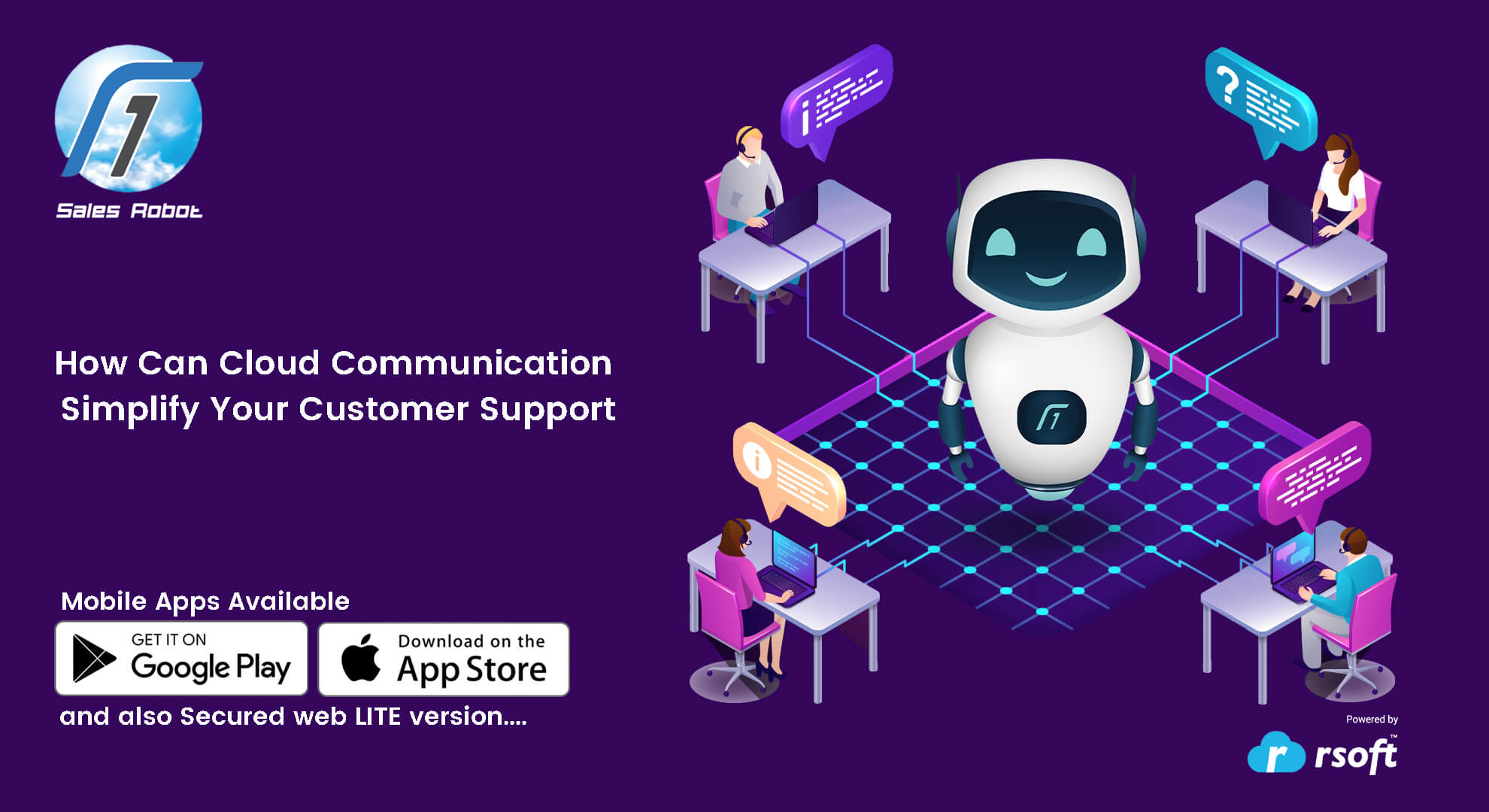Outstanding customer service is a crucial indicator of a prosperous enterprise. Even if a customer is unhappy with one company's service, they have many others to choose from as competition in the market grows. The loyalty of today's consumers is fleeting and short-lived
As a result, businesses are under increasing pressure to offer customer service that lives up to rising expectations. But how can you ensure that your customer support system simplifies rather than complicates providing support as your business expands and its processes become more intricate?
In this article, we will examine the inner workings of cloud communication and why it may represent your company's future. How it can improve your ability to satisfy customers, expand your business, and run efficiently while cutting costs.
Why, then, does cloud-based communication seem to be gaining in popularity? What we'll be analyzing here to get a handle on it is:
In what way does cloud-based interaction occur?
A In this context, "cloud communication" refers to tools that facilitate online interaction between a company and its clients and workers. We must take it apart a little more to see what's happening.
Computing in the cloud, or simply "the cloud," is a relatively recent development that uses the massive data-processing power available via an online connection. Everything you put "in the cloud" is stored on a server in another location, which could be

anywhere in the world. Information stored on a server can be accessed from afar and used anywhere. The most common form that this information takes is that of files, such as pictures, documents, or videos that can be backed up and accessed at any time. Hosted communication solutions, on the other hand, allow for the remote deployment and management of complex applications. That means you can use the features immediately without spending time installing them or requiring special media.
A'softphone' is required for cloud-hosted telephony systems. This means that instead of a physical PBX box and PSTN line, the system consists of a piece of software that is accessed online.
There is potential to incorporate services like video conferencing, web chat, and instant messaging, in addition to the cost savings, ease of scaling, and flexibility of remote access. Integrating advanced features work in tandem with your RSoft customer relationship management (CRM) program to streamline business communications and enhance your company's customer service.
Voice over Internet Protocol is the primary technology behind these communication solutions (VoIP). With the help of technologies like Session Initiation Protocol (SIP), VoIP enables phone calls to be sent over the internet rather than using the more conventional copper wiring. This uses a data connection's vastly more abundant bandwidth, enabling significantly more calls, more in-depth reporting, improved connectivity, and the aforementioned sophisticated features and integrations.
Because of their portability, scalability, and abundance of features, it's no wonder unified communications have taken off in the field of customer service. Because of all the features they provide, your staff will be able to provide superior service even from a basic computer station, whereas this was previously impossible with standard services. Numerous new avenues for business communications are made possible by allowing for the hosting of phone systems.
What does it benefit from migrating your company's phone system to the cloud?
If any of those describe your company, implementing a cloud communication system will help you run your business more smoothly and successfully. Reducing expenditures while boosting employee happiness, customer satisfaction, and profits.
Better interactions with consumers
Improve your agents' ability to satisfy customers by utilizing cloud computing. Agents can assist customers, answer their questions, and work together efficiently if provided with the appropriate resources. All relevant data and customer histories are conveniently located on a unified platform, simplifying the workflow. Smart escalations and call monitoring also aid agents fix problems on the first try, decreasing call dropouts and boosting customer happiness.
Flexibility in expanding your call center's capacity quickly and painlessly
Demand, measured in terms of the number of employees needed or customers, tends to rise and fall in any given business. You don't have much leeway when that happens in a conventional communication system.
Scaling, however, can be done almost instantly in a cloud-based operation. All it takes is a few clicks to add a new phone, email, or IM number, and everyone's contact lists will be updated instantly. You can plan for the future of your contact center without paying for the capacity you don't need right now with subscription packages that allow you to adjust the call volumes in your allowance.
Support for a wide variety of communication methods across all channels
More than ever, it's crucial to consolidate all your communication channels into a single platform, as customers now use a dizzying array of methods to get in touch. And because they only need to know one set of login details and one set of features, agents can switch between channels quickly and easily.
International scope
As more people take advantage of remote work opportunities and the world becomes more interconnected, online systems make it possible for businesses to function regardless of where their employees are. You can use virtual phone numbers to set up shop in different countries without actually relocating to extend your influence worldwide.
Improved dependability
You can rest assured that your service will always be available because your host has built-in redundancy and is responsible for maintaining it. That's a relief, as it means you won't have to rush to schedule on-site visits whenever an issue arises with your on-premises system.
Stricter budget management
A cloud-based communication system saves money because it eliminates the need for costly, frequently-replaced hardware. Moreover, a cloud telephony system enables the purchase of virtual phone numbers, which can be used to expand telephony operations beyond any geographic boundaries.
Comprehensive analytics and reports

Detail is where success is made, and with cloud, communications come the ability to report and analyze data on things like employee productivity and customer satisfaction. Information can be quickly distilled into actionable insights for predicting customer behavior and matching agent availability. As a result, you'll be able to provide more straightforward, consistent, and better-quality service to your customers.
Stricter budget management
Moving from an older, "on-premises" system to a modern cloud-based communication platform is more accessible.
Copper wires are used in landline phone systems, connecting handsets to a P.B.X. (PBX). This then links to the PSTN via PRI lines, which stands for "Primary Rate Interface" (PSTN). Creating an actual, tangible link between your workplace and the outside world.
Since much of this infrastructure is compatible with SIP trunking, it can be used during a cloud migration. When you connect your PBX to an online PSTN, there is no need for costly and time-consuming cabling.
You could also switch to a cloud-based solution by deploying a network-wide softphone system. In this scenario, you can get rid of your physical PBX because a system in the cloud will handle your calls and infrastructure. All you need is a computer or mobile device with an internet connection and a phone or headset to use the system.
Both of these solutions are digitally driven, so they can be set up in minutes, and employees can get to work immediately.
Conclusion
Moving to a cloud-based communication system is the logical next step if a company is serious about streamlining and improving its customer service. Cloud-based systems are far superior to conventional ones because of the new possibilities for integrations, the money it saves, and the leeway it gives you in how you use them.
Businesses can't afford to offer subpar customer service because consumers are increasingly exercising their power of choice.
Thus, look no further than RSoft Technologies for all your product integration requirements


